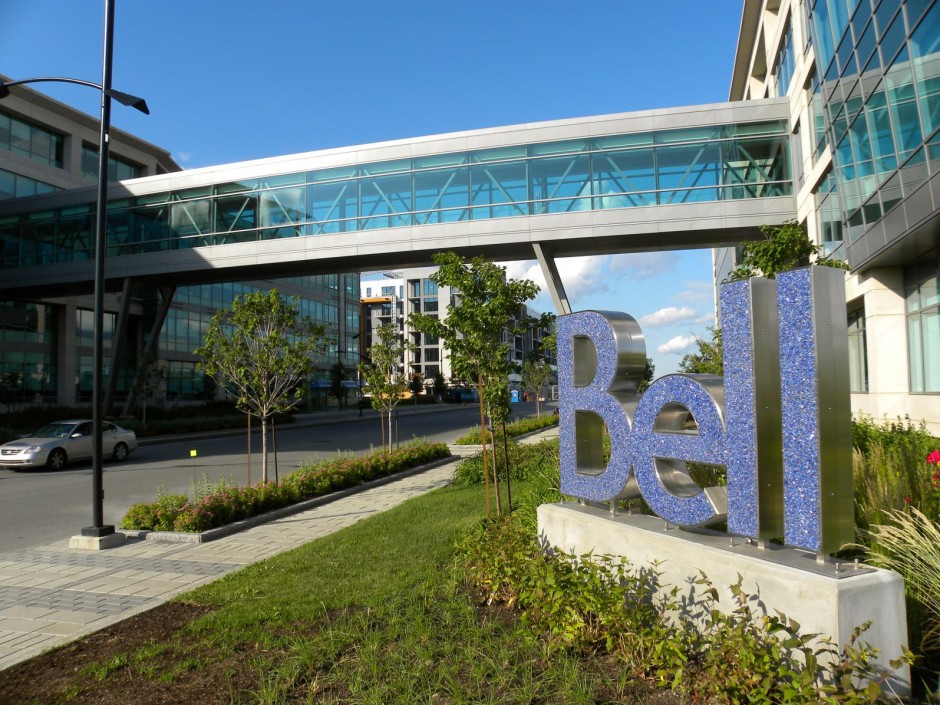Bell’s CRTC Appeal Will Raise Internet Prices, Reduce Investment
In December Toronto Mayor John Tory came out AGAINST greater choice for access to Internet service. This week – in contrast – Toronto City Council is considering a motion that would support open, affordable high-speed fibre Internet access across the city –and your OpenMedia team is supporting it.
This piece by our Josh Tabish was originally published by The Huffington Post.
Imagine you have two children, a few years apart in age. For a long while, only the older child received an allowance for their chores. Then, one day, your younger child is now old enough to receive an allowance as well.
When the older child hears this, he throws a tantrum, saying he wants all of the allowance money or he'll refuse to help out around the house entirely.
Unfortunately, the situation playing out over the future of the Internet in Canada is nearly this childish.
Within 48 hours of last year's federal election, Bell Canada (BCE Inc.) invoked a rarely used procedure asking Cabinet to reverse a major pro-consumer CRTC decision. The decision continued a longstanding CRTC policy by granting small Internet service providers (ISPs) fair wholesale access to the fibre networks of large telecom companies, such as Bell.
In Bell's appeal, they also asked the CRTC to "review and vary" the ruling -- a process by which the regulator can be asked to reassess their decision.
The CRTC's rules were designed to allow independent ISPs to sell blazing-fast fibre Internet services to customers in the marketplace. Experts believe that will help make fibre available to millions of Canadians who would otherwise could not afford these important but very expensive services.
Bell's attempt to overturn these customer-friendly rules has sparked a barrage ofsubmissions to Canada's Innovation Minister Navdeep Bains -- some supportive, many not -- urging him to refuse Bell's appeal.
What is surprising, however, is the remarkably diverse group of organizations who have come together to oppose Bell's efforts.
These strange bedfellows include: Shaw Communications Inc., Rogers Communications Inc., the Canadian Federation of Independent Business (representing 109,000 small- to medium-sized businesses), the City of Calgary, nine consumer advocacy organizations, dozens of independent ISPs, a range of academic experts and more than 52,000 individual Canadians.
The groups are asking federal decision-makers to reject Bell's appeal on the grounds that it puts Canada's digital infrastructure at risk and would reduce customer choice and affordability -- especially since international evidence shows that countries with fair, open access rules enjoy higher rates of fibre deployment than those that do not.
"Caving in to Bell's position would confirm fears that the government intends to revert to the bad old days of coddling our giant telcos at the expense of everyday Canadians."
We don't need to look overseas for evidence of this, as the actions of Bell, other telecom companies and their investors already make the point clearly.
First, Bell and other large service providers like Telus only announced they would finally start building fibre networks in certain urban centres immediately after the commission's decision in July 2015. In other words, Bell's own actions suggest that the CRTC's rules will in fact increase investment in Canada's Internet market.
Second, the Royal Bank of Canada (RBC), the largest institutional investor for Bell, stated in an August report that it expected the CRTC ruling would have little impact on incumbents' fibre deployment plans.
Third, telecom giants Shaw and Rogers both opposed Bell's appeal at the CRTC, with Shaw stating that the "... impact of adopting Bell's new conditions would be to reduce consumer choice in the marketplace."
Now, if (a) a financial institution that benefits from Bell's success is supportive of the CRTC decision, (b) Bell and other telecom companies announce large investments after the ruling and (c) even the likes of Rogers and Shaw have doubts about Bell's appeal, then readers may be left scratching their heads wondering: why did Bell file the appeal at all?
The answer: Bell isn't satisfied with having just their allowance. It wants everybody's. And they're threatening to abandon their chores until they get their way -- that is, they're threatening to stop building the very networks it says are the key to its future and everyone else's.
At this point, this decision is shaping up to be a real litmus test for Trudeau's new cabinet and for minister Bains. Caving in to Bell's position would confirm fears that the government intends to revert to the bad old days of coddling our giant telcos at the expense of everyday Canadians -- an approach that stands in stark contrast to the previous Harper government, which was not afraid to stand up against the likes of Bell, Rogers and Telus.
On the other hand, standing up to Bell is a remarkable opportunity for minister Bains to side with long-suffering Internet users and to put his own stamp on Canada's telecom policy. One thing is clear: the stakes couldn't be higher for our digital infrastructure and the pocketbooks of individual Canadians and businesses.


 Take action now!
Take action now!
 Sign up to be in the loop
Sign up to be in the loop
 Donate to support our work
Donate to support our work